“An important biological species - humankind - is at risk of disappearing due to the rapid and progressive elimination of its natural habitat. We are becoming aware of this problem when it is almost too late to prevent it.” It was not Greta Thunberg who spoke these prophetic words but the Cuban leader Fidel Castro, almost 30 years ago, at the Earth Summit in Rio de Janeiro in 1992.
"The forests are disappearing. The deserts are expanding,” Castro went on. “Less luxury and less waste in a few countries would mean less poverty and hunger in much of the world. Enough of selfishness. Tomorrow will be too late.”
Cuba hasn't had the kind of industrialisation that we have had in capitalist areas, because they’re not a capitalist society. It’s not all about growth. So, in the 1960s, there was no tourism development. It’s turned the country into this accidental Eden.
As Greta so often highlights, meetings like the Earth Summit are so often “blah, blah, blah” - all talk and no action. But when Castro headed back to Havana in 1992, he acted. “Castro came back from the summit and changed the constitution to protect the land,” says Lucy Davies, a travel expert with decades of experience living and guiding in Cuba. “Around 22% of Cuban land is protected as national parks or biosphere reserves. I don’t think there are any other countries in the world that have such a large proportion of their land and seas protected.”
Castro was, of course, never far from global controversy. The New York Times wrote that "he had both admirers and detractors in Cuba and around the world. Some saw him as a ruthless despot who trampled rights and freedoms; many others hailed him [...] as a revolutionary hero for the ages." The repression of political freedoms and freedoms of movement in Cuba are and were well documented, but as The Guardian noted in their obituary of Castro, he also "projected Cuba as the world's first truly 'green' society".
As recently as 2015, Cuba was ranked number one in the world on the Sustainable Development Index. “Obviously Castro's speech [in Rio] was politicised, but it sounds like he's talking now,” Lucy says. “He says that we have to start reducing our consumption and luxury to make a difference to the majority."
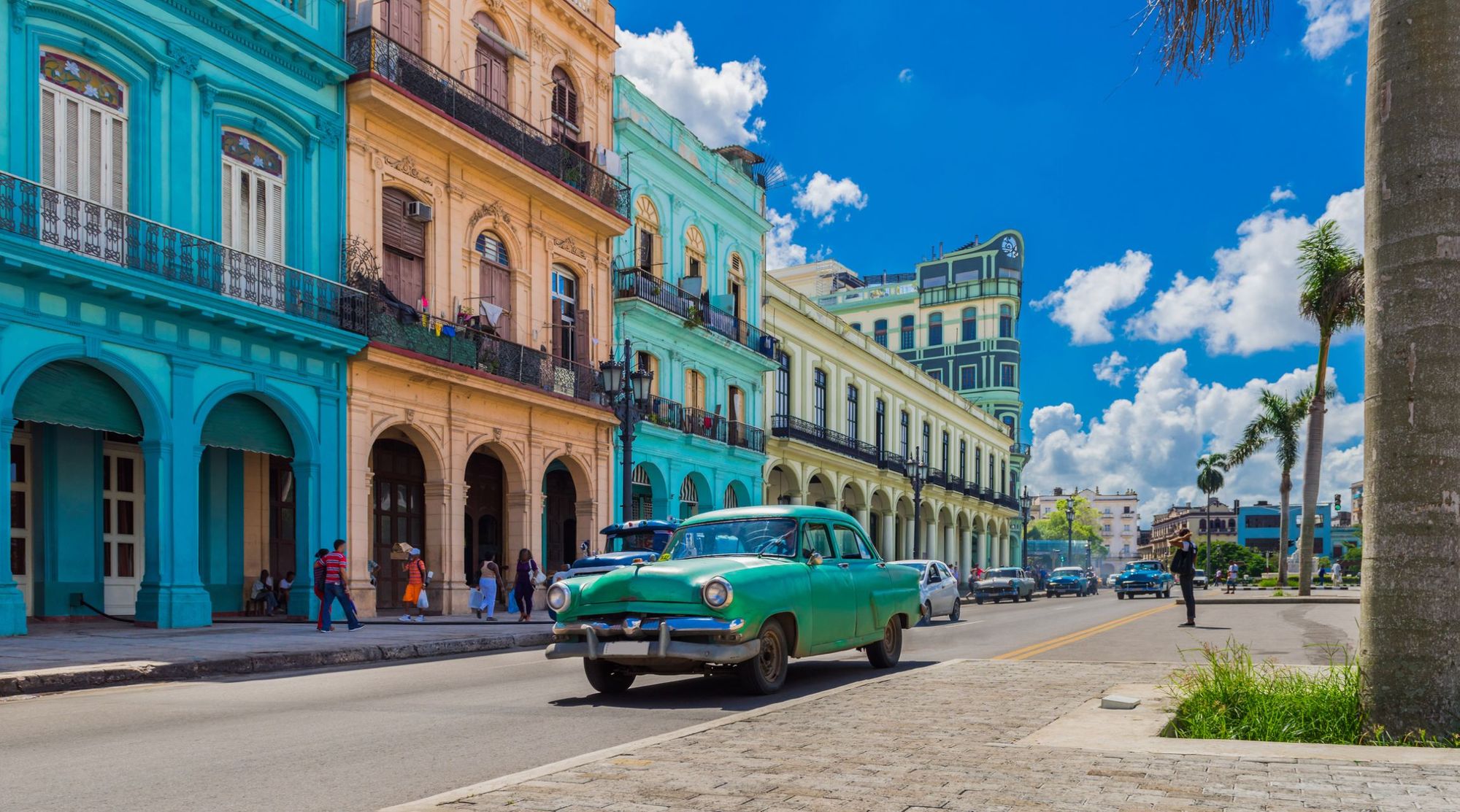
Cigars. Che. Communism. 1950s Cadillacs. Food shortages. Vivid colours brightening run down buildings and music which sings to the soul. This is the image that most people conjure when they hear the word 'Cuba' - and there is an importance and a story behind each item on that list. Lesser known, however, is the remarkable story of how through a combination of chance, necessity and design, Cuba has developed into the Caribbean's leading hub for biodiversity.
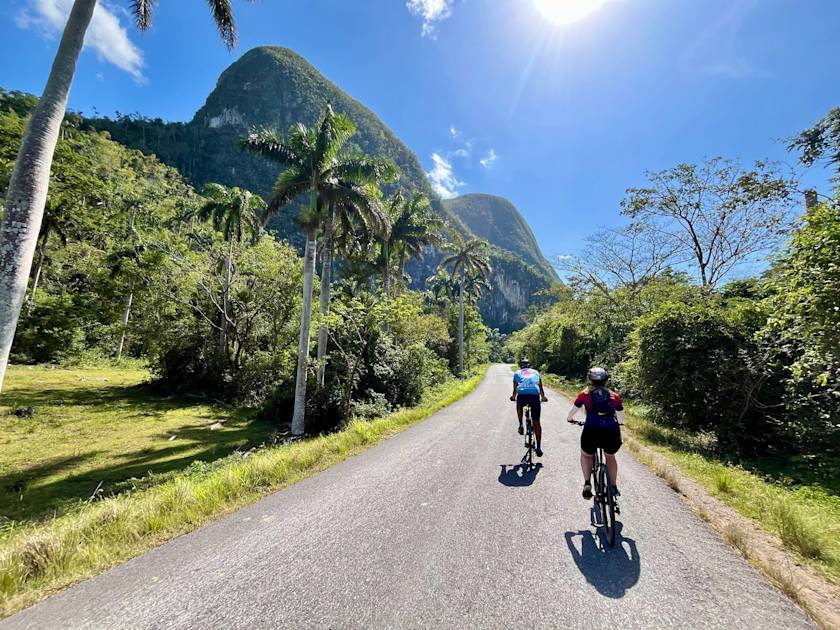
“Because of the Cold War, Cuba didn’t really develop tourism until the 90s,” says Lucy. “While the rest of the Caribbean was building hotels and condos on their beaches, Cuba wasn’t. They were shut off, so their ecology stayed intact."
Today, Cuba is the only country in the Caribbean with an intact coral reef, and untouched wetlands. It's estimated that half of the 7,000 species of plant in Cuba are endemic - and up to 80% of the animals. It's home to crocodiles, flamingos, iguanas, dolphins, hummingbirds, pygmy owls and so much more.
“It really is a biosphere superpower in the Caribbean," Lucy continues. "All kinds of species that have died out in other places are still here in Cuba. They haven’t had the kind of industrialisation that we have had in capitalist areas, because they’re not a capitalist society. It’s not all about growth. So, in the 1960s, there was no tourism development. It’s turned the country into this accidental Eden.”
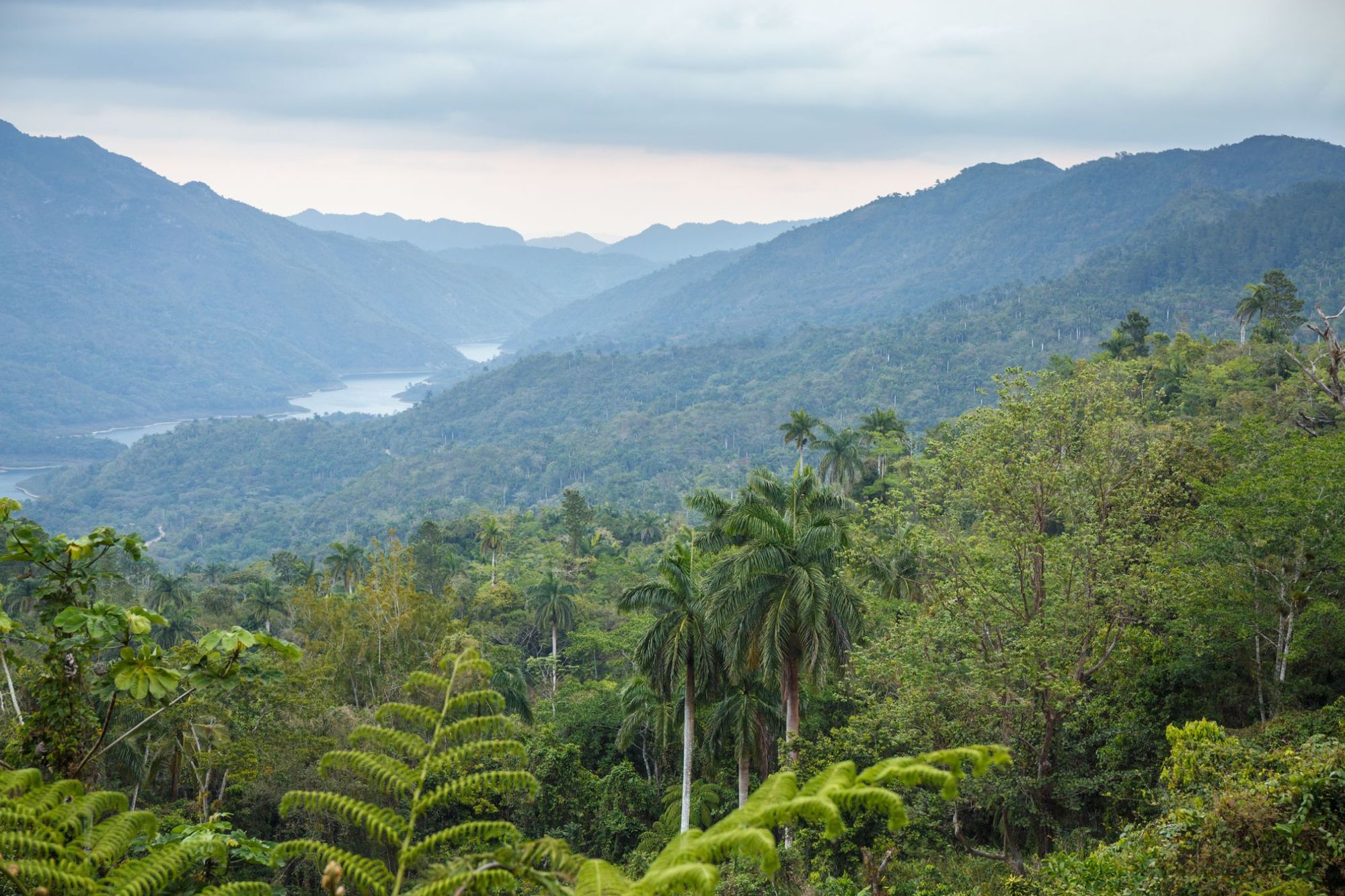
For half a century, the rigid socialist policies of Cuba, and the U.S. economic embargo, kept Cuba stuck in the past. The New York Times describe Castro's legacy as "a mixed record of social progress and abject poverty, of racial equality and political persecution, of medical advances and a degree of misery comparable to the conditions that existed when he entered Havana as a victorious guerrilla commander in 1959." But while the cities went into disrepair and food became scarce on the shelves, the environment thrived.
They were forced to implement organic agricultural practices long before we were, because of the shortages. It's part and parcel of the culture in Cuba.
The ‘Special Period’ in the 1990s saw an increasingly severe food crisis. It was brought about by mismanagement, and a sudden loss of cheap food imports from countries in the Eastern Bloc. After the Soviet Union collapsed, so did trade to and from Cuba. While hardly desirable, the period did force the government to embrace environmental practises others wouldn’t implement for decades.
“They lost 75% of their import/export,” says Lucy. “They lost all their fertiliser. So they were forced to go to organic agricultural practices long before we were. Everything in Cuba was already organic in the 90s. And because of the shortages, they would do what your grandparents would have done in the second world war, which is make do and mend. It’s part and parcel of the culture in Cuba. Well before we were recycling, they were doing it as a matter of course.”
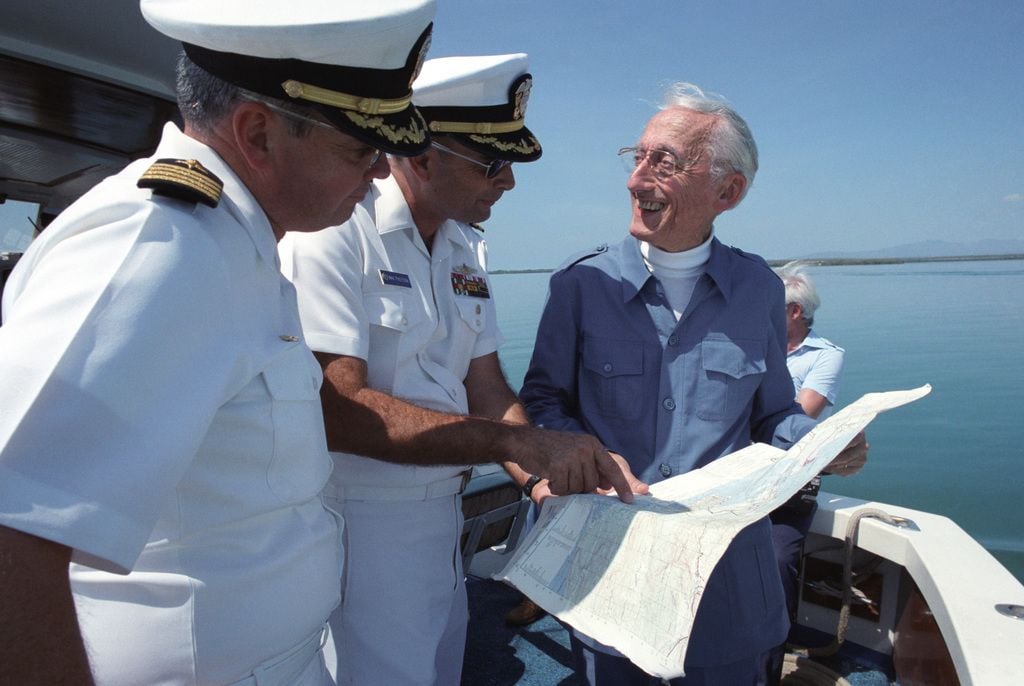
Fidel put his environmentalism partly down to one particular meeting. It was in 1985 that the environmentalist Jacques Cousteau journeyed to Cuba on his famous ship, Calypso, to film the documentary 'Waters of Destiny'. Cousteau’s “underwater exploits made him a hero to millions, including Castro,” wrote Paula DiPerna, who was a writer and policy advisor with Cousteau on the trip. Thrilled by the visit, Castro gave Cousteau an all-access pass to Cuba's natural world, and even threw a cocktail party to celebrate his arrival.
The problem with Cuba is that everybody assumes when you [compliment it], it’s political, because everything around Cuba is, but the reality is just that the work has been done.
Cousteau and his team stayed in Cuba for almost half a year, interviewing Fidel Castro on several occasions, covering all of the island and even visiting Guantanamo Bay. Cousteau had gone ahead with the trip despite the US State Department urging him not to go, but in the end, negotiations actually led to Castro releasing 50 political prisoners to commemorate Cousteau’s visit.
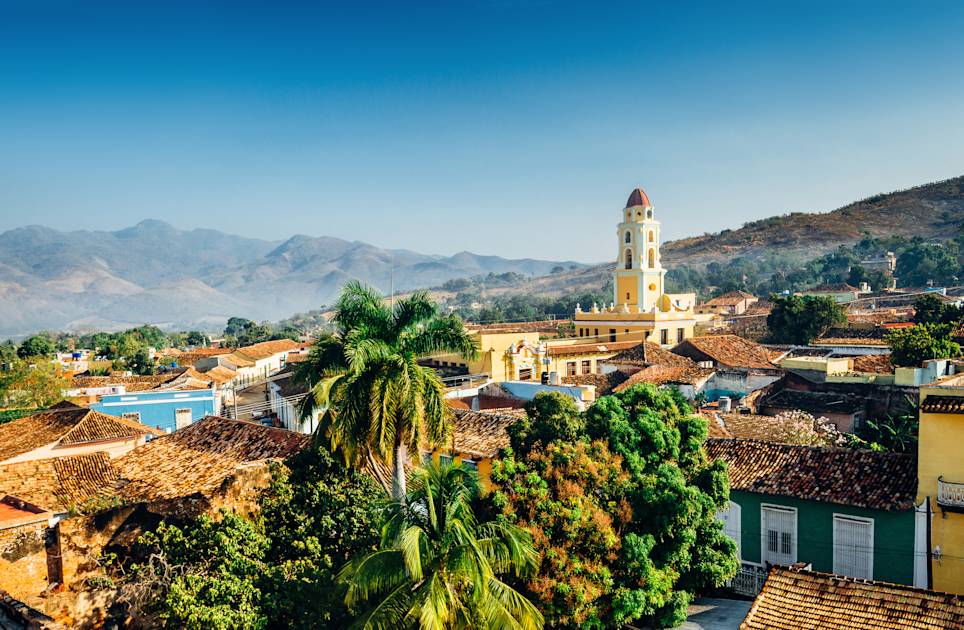
“Fidel Castro was a very keen diver,” Lucy says, and this no doubt contributed to his admiration of Cousteau. DiPerna describes Castro as “an ardent student of the seas,” and this visit from Cousteau is said to have influenced him deeply.
“After Rio, Cuba did something about it,” says Lucy. “The problem with Cuba is that everybody assumes when you say something like that, it’s political, because everything around Cuba is, but the reality is just that the work has been done there. There are 13 biosphere reserves in the whole Caribbean - and six are in Cuba. It’s head and shoulders above the rest in terms of ecology."
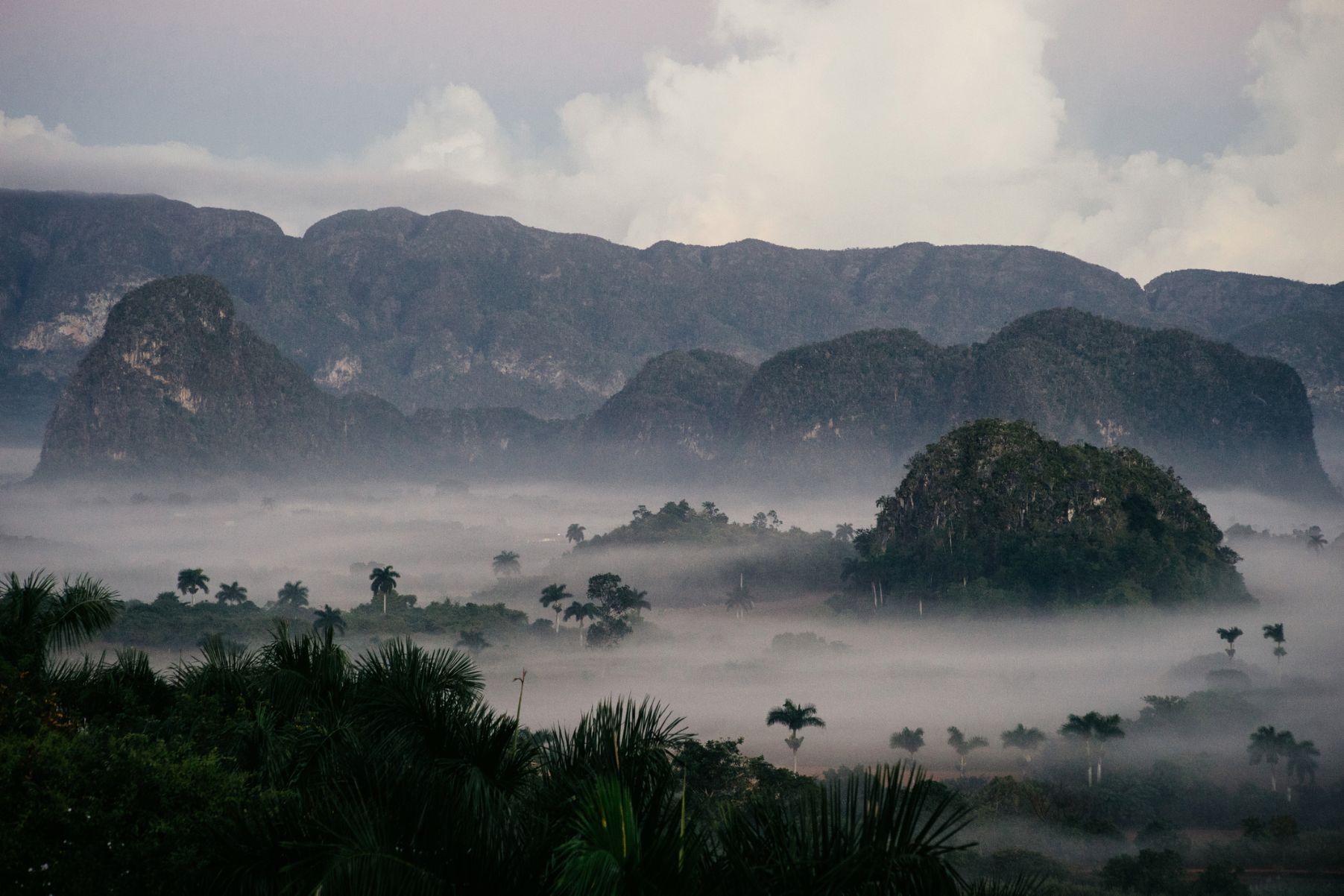
Lucy continues: “I remember in the 90s there was a huge push for ecotourism here." A biosphere reserve called Las Terrazas, which was developed in the Viñales Valley, an hour west of Havana, came into its own. "It had previously been decimated to make carbon, which was the fuel that everybody used, and it was completely destroyed," says Lucy. "That land was re-nationalised, and they planted lots of hardwood trees and built a community in the centre of it. It’s now a self-supporting community, and guests can stay there by the river.
"It's a good example of how the government supported tourism and created something profitable as well, which supports probably about 2,000 families, who live and work on the community.”
It was in July 1997, the month after Jacques Cousteau died, that Cuba introduced Law 81, the Law of the Environment. It set out to reverse the damage of previous decades and further invest in nature. It soon banned destructive fishing practises and introduced a specific emphasis on environmental education.

Castro ceded power to his brother Raúl in 2008, and the leadership of the one-party system passed to Miguel Díaz-Canel in 2018. Cuba's economic crisis remains dire, but a fascinating environmental focus has continued.
“In 2017, they put together a long-sighted project called ‘Tarea Vida’,” says Lucy. It translates as 'Life Task'. “It’s a state plan which progressively invests in projects to protect the environment. There was a short term goal for 2020, then for 2030 and there's a long-term plan for 2050. The whole point is to identify and protect people’s lives, mainly in vulnerable places like the coastline, but also to ensure food security - and to continue a sustainable development of tourism.”
Lucy continues: “People often say that Cuba is sustainable just because they’re so poor, and that is true to an extent, but in addition, they’ve made a real effort. It’s an accident in some ways, but it’s also very much by design. That second part is something that’s often missed.”
Perhaps the great irony of all is that by neglecting to build the tourism and resort infrastructure that destroyed much of the nature in other Caribbean islands in the 60s, Cuba is now uniquely placed to develop its ecotourism offering. Part accident, part design, the country renowned for its red links has stayed green.
Inspired? Check out our seven-night cycling adventure or our Ultimate Adventure Through Cuba, put together by Lucy and the boffins at Much Better Adventures!


